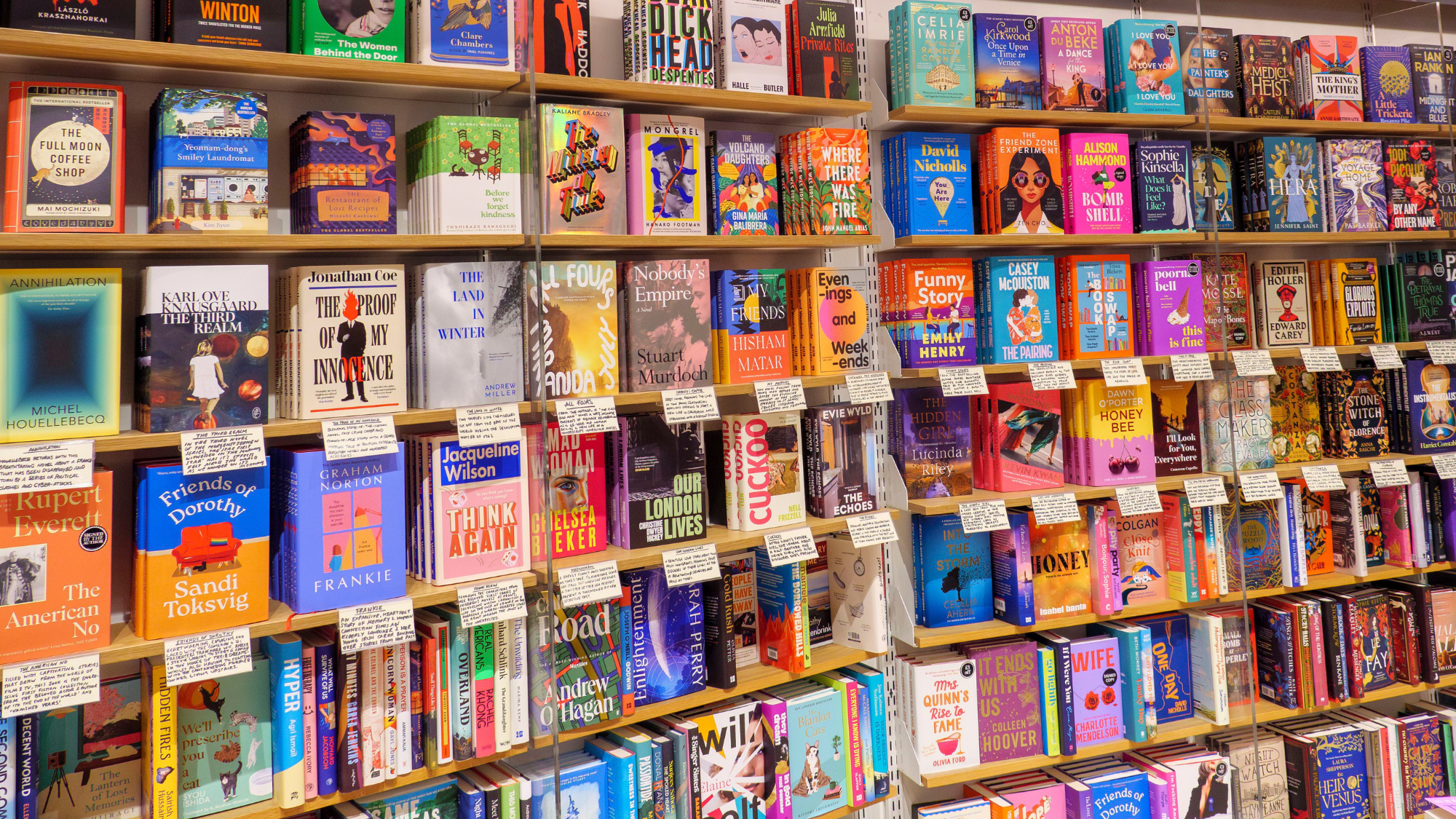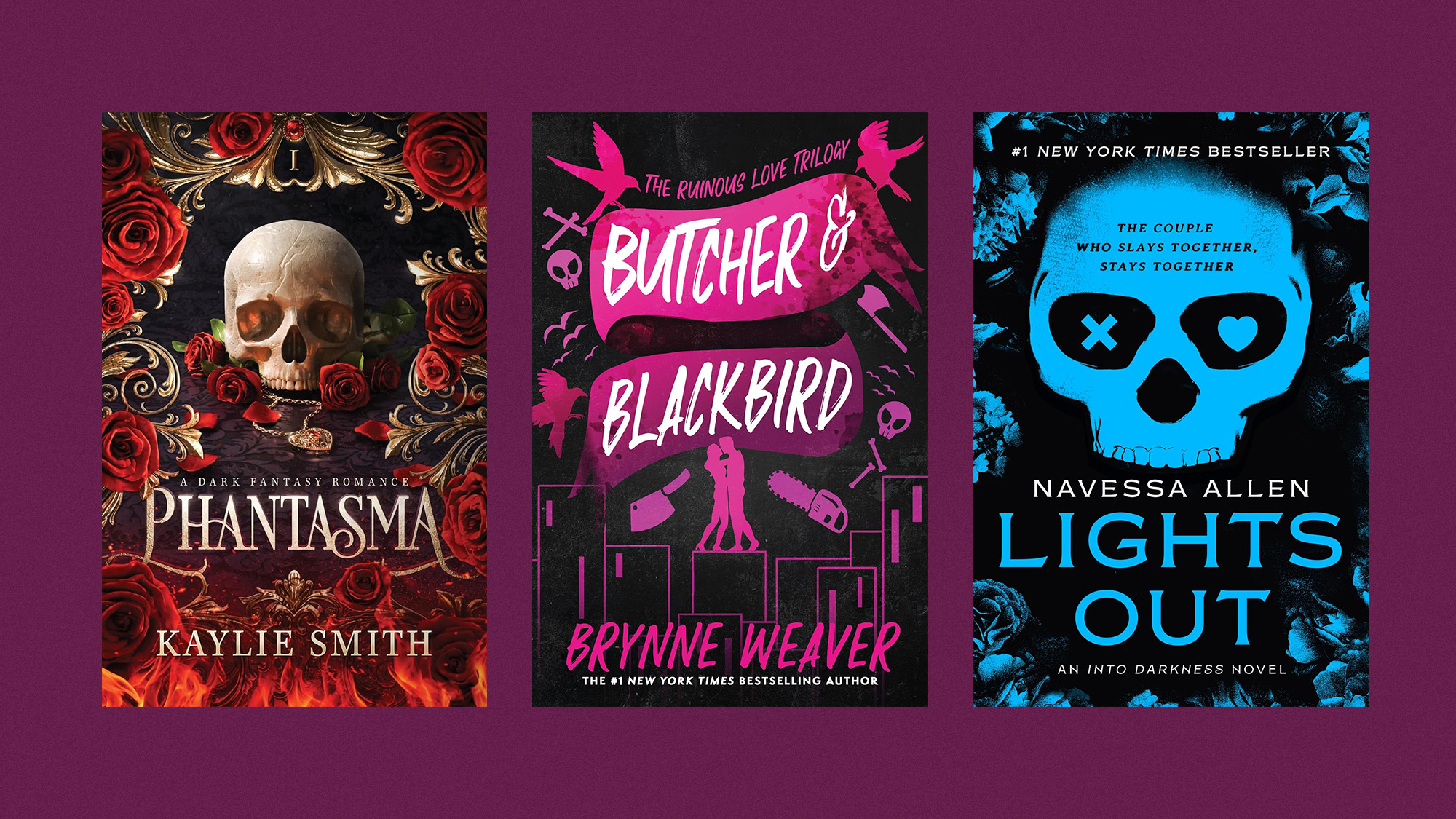BookTok is reviving publishing – but at what cost?
Social media recommendations are boosting book sales but critics give the trend mixed reviews

A free daily email with the biggest news stories of the day – and the best features from TheWeek.com
You are now subscribed
Your newsletter sign-up was successful
Years of slowing sales and a decline in reading for pleasure should spell a grim future for the publishing industry. But BookTok, a widely popular subgenre of the Tiktok platform that's devoted to reviewing and recommending books, is offering a glimmer of hope.
Waterstones is "opening 10 new stores a year" and exploring new locations thanks to a "boom in UK sales of fiction last year", said The Guardian. But, as BookTok continues to grow, "the line between influencer and creator is becoming increasingly blurred", said The Bookseller. Editors are "increasingly finding their authors online" or favouring writers with a large social media following – a trend that could seriously disrupt the industry's status quo.
'Embrace' the romance
Racking up hundreds of billions of views, BookTok creators have real influence over what bookstores stock and what their customers buy. Authors like Colleen Hoover and Sarah J. Maas have seen their novels rocket to the top of bestseller lists off the back of social media buzz.
The Week
Escape your echo chamber. Get the facts behind the news, plus analysis from multiple perspectives.

Sign up for The Week's Free Newsletters
From our morning news briefing to a weekly Good News Newsletter, get the best of The Week delivered directly to your inbox.
From our morning news briefing to a weekly Good News Newsletter, get the best of The Week delivered directly to your inbox.
While traditional critics often focus on "blue chip biographies and literary fiction", the BookTok community is "revelling in genres once only discussed in book clubs or Reddit threads", said Leila Herrmann in Vogue. BookTok bestseller lists compiled by major publishers and retailers, reveal "a clear pattern: almost exclusively, the books that rank are romance, fantasy" and adult fiction.
For fans of romance, a publishing category that "historically hasn't gotten the respect it deserves", BookTok has created space to "loudly and proudly embrace" the genre, said Carly Tagen-Dye in US magazine People. And now "romance-specific bookstores are steadily popping up" across America, providing "an oasis" for lovers of love literature.
And BookTok is also making classic and literary fiction, often seen as "elitist", more "accessible to the masses", said Arabella Grace in The Boar. After Jack Edwards, the book influencer who describes himself as "the internet's resident librarian", joined dozens of others to share gushing reviews of Fyodor Dostoevsky's "White Nights", the novella, originally published in 1848, rose through the charts to become one of 2024's bestsellers.
'Pressure to read an incredible amount'
Even for its most ardent fans, BookTok has downsides. One "rather glaring problem" is a lack of diversity, said Tyler McCall in The Cut. "Almost every author who has found life-changing success" on BookTok is white, an "extension" of the "racial inequity in the publishing industry overall". But "I think that, given how young the BookTok audience skews, there's not really a level of self-awareness about that yet", content creator Sanjana Basker told McCall.
A free daily email with the biggest news stories of the day – and the best features from TheWeek.com
The viral- and algorithm-driven nature of BookTok often means "the same works are pushed over and over again", and bestsellers incongruously promoted as "hidden gems", said Herrmann in Vogue. BookTok culture also comes with a "pressure to read an incredible amount", with some creators picking "ultra-short books to help viewers boost their end-of-year tally". For some followers, the quest to reach a 100- or 200-book total or fill shelves with brightly coloured covers overshadows the reading itself.
But critics who dismiss BookTok as "shallow" or "consumeristic" really do "miss the point", said Yarimar Bonilla in The New York Times. Ultimately, BookTokkers "are encouraging people to read", she said. "Not for grades or prestige but to find joy and sanctuary in deeply troubling times."
-
 Political cartoons for February 15
Political cartoons for February 15Cartoons Sunday's political cartoons include political ventriloquism, Europe in the middle, and more
-
 The broken water companies failing England and Wales
The broken water companies failing England and WalesExplainer With rising bills, deteriorating river health and a lack of investment, regulators face an uphill battle to stabilise the industry
-
 A thrilling foodie city in northern Japan
A thrilling foodie city in northern JapanThe Week Recommends The food scene here is ‘unspoilt’ and ‘fun’
-
 Book reviews: ‘Hated by All the Right People: Tucker Carlson and the Unraveling of the Conservative Mind’ and ‘Football’
Book reviews: ‘Hated by All the Right People: Tucker Carlson and the Unraveling of the Conservative Mind’ and ‘Football’Feature A right-wing pundit’s transformations and a closer look at one of America’s favorite sports
-
 Josh D’Amaro: the theme park guru taking over Disney
Josh D’Amaro: the theme park guru taking over DisneyIn the Spotlight D’Amaro has worked for the Mouse House for 27 years
-
 Book reviews: ‘Vigil: A Novel’ and ‘Fear and Fury: The Reagan Eighties, the Bernie Goetz Shootings, and the Rebirth of White Rage’
Book reviews: ‘Vigil: A Novel’ and ‘Fear and Fury: The Reagan Eighties, the Bernie Goetz Shootings, and the Rebirth of White Rage’Feature Taking on the space between life and death and a look back at a 1984 shooting that shocked New York City
-
 Heated Rivalry, Bridgerton and why sex still sells on TV
Heated Rivalry, Bridgerton and why sex still sells on TVTalking Point Gen Z – often stereotyped as prudish and puritanical – are attracted to authenticity
-
 Admin night: the TikTok trend turning paperwork into a party
Admin night: the TikTok trend turning paperwork into a partyThe Explainer Grab your friends and make a night of tackling the most boring tasks
-
 The best fan fiction that went mainstream
The best fan fiction that went mainstreamThe Week Recommends Fan fiction websites are a treasure trove of future darlings of publishing
-
 Book reviews: ‘The Mattering Instinct: How Our Deepest Longing Drives and Divides Us’ and ‘Family of Spies: A World War II Story of Nazi Espionage, Betrayal, and the Secret History Behind Pearl Harbor’
Book reviews: ‘The Mattering Instinct: How Our Deepest Longing Drives and Divides Us’ and ‘Family of Spies: A World War II Story of Nazi Espionage, Betrayal, and the Secret History Behind Pearl Harbor’Feature The pursuit of ‘mattering’ and a historic, devastating family secret
-
 The best dark romance books to gingerly embrace right now
The best dark romance books to gingerly embrace right nowThe Week Recommends Steamy romances with a dark twist are gaining popularity with readers